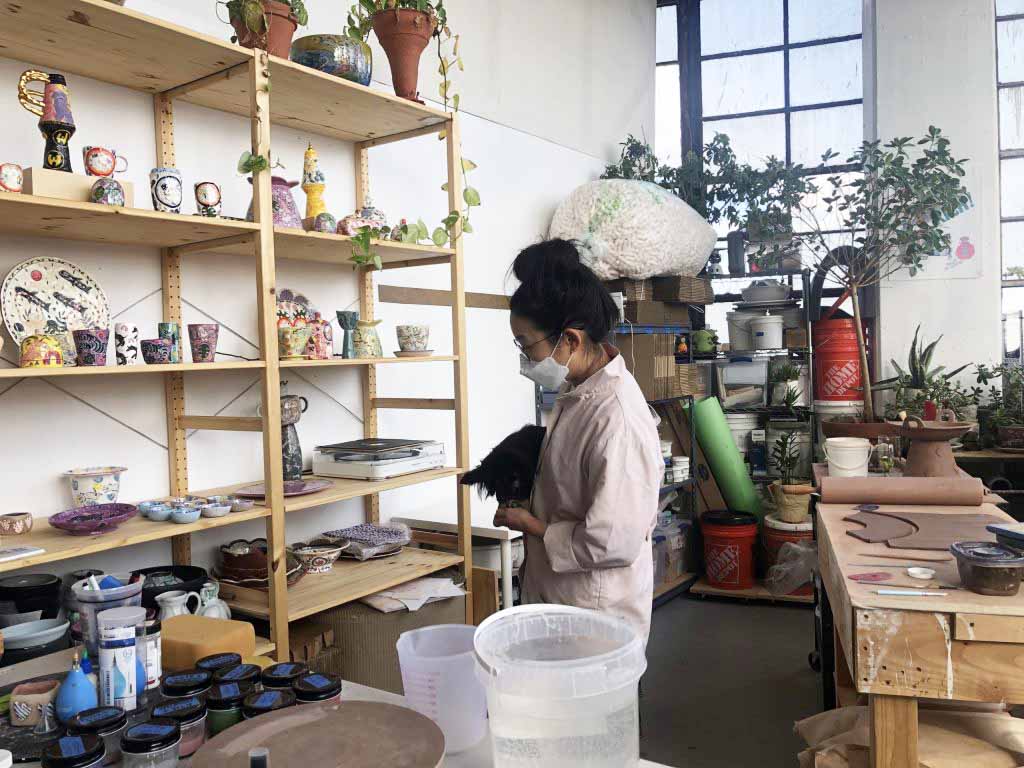Chef Nornie Bero Makes Australian Native Ingredients Accessible
From condiments to a restaurant and a new cookbook, Mabu Mabu’s mission is about food and cultural connection

A professional chef for more than 25 years, Nornie Bero—who is from the Komet People of Mer Island in the Torres Strait—has just released her first cookbook, Mabu Mabu. The book is named after her company Mabu Mabu, which comprises a catering service, small-batch products and two venues—Tuckshop and Big Esso—in Melbourne, Australia, but that name itself originates from a phrase in Meriam Mir (spoken in the Eastern Islands of the Torres Strait, and Bero’s first language) which means “help yourself.” Mabu Mabu’s overall mission is to make Indigenous food and Australian native ingredients accessible. More than that, Bero wants to change people’s perspectives and set an example for kids who grew up like her. “The easiest way to change people’s views is through food,” she tells us. “Food is the way forward. Everybody smiles when they eat. And it doesn’t matter what opinion you have, food brings everyone together. Food is multiculturalism. Food opens conversation. Food is an experience that brings cultures together.”
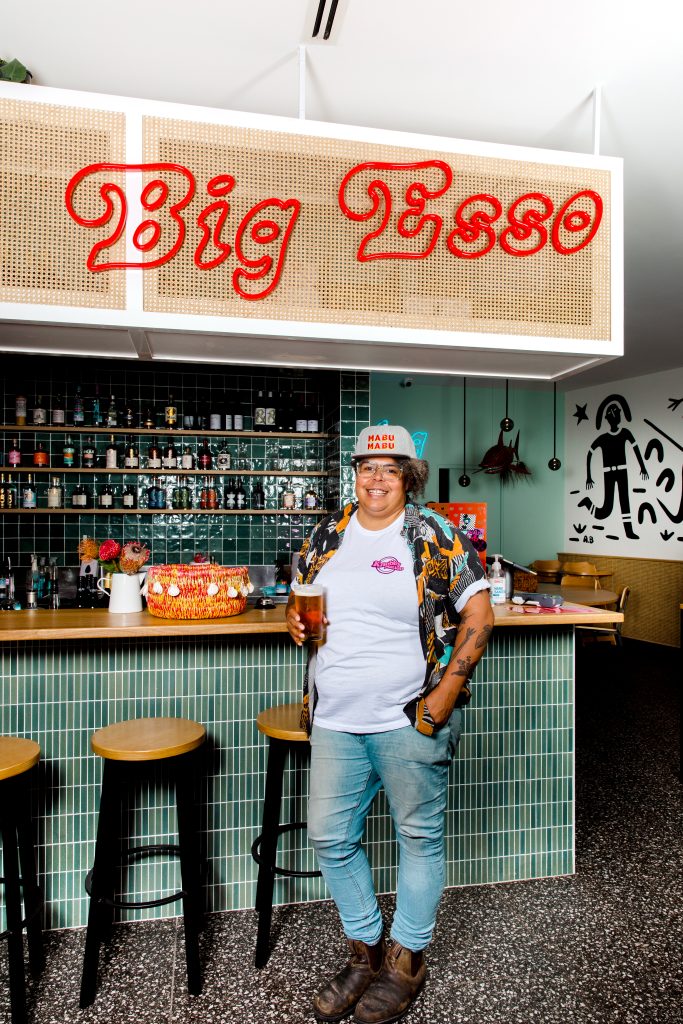
Growing up in the Torres Strait—from Mer Island to Moa Island—Bero spent a lot of her childhood outdoors, picking fruits, fishing and cooking. When she was quite young, her father (a big dreamer with an entrepreneurial spirit) recognized her passion and gift for food. “Now that I’m older, I realize all the confirmation classes I missed to go pickle mangoes and tamarins probably led me down this path,” she laughs. When her dad got sick in his early 30s, Bero’s own trailblazing spirit was stimulated. “He never gave up on the dream,” she says. “Because he got sick so young, I guess I thought I’d have to achieve on my own and be the role model he wanted to be. I think I did it for both of us. So I went and I achieved as much as I could, and stood on my own two feet, and just to represent—to make him proud. I think that maybe half of it was for him and half of it was for me.”

Her father, grandmother and aunts all instilled a strong work ethic in Bero too. Leaving home at a young age and moving to bigger cities, she entered the hospitality industry as a teenager in the late ’90s. The field was—and continues to be—dominated by white, cisgender men. “I just worked around them and took their jobs,” she laughs. “I came up in a different time. A lot of lot of female chefs that I was friends with that came up with me at the time cried most of the days and left the industry. But I grew up around some tough people, you know, ‘I’m not going to let you deter me!’ I just worked triple as hard. You really have to have a thick skin in this industry. There’s still that boys club. I have restaurants in the industry, but there’s still a boys club out there that really dominates the industry. But I think women are the way of the future of this industry.”
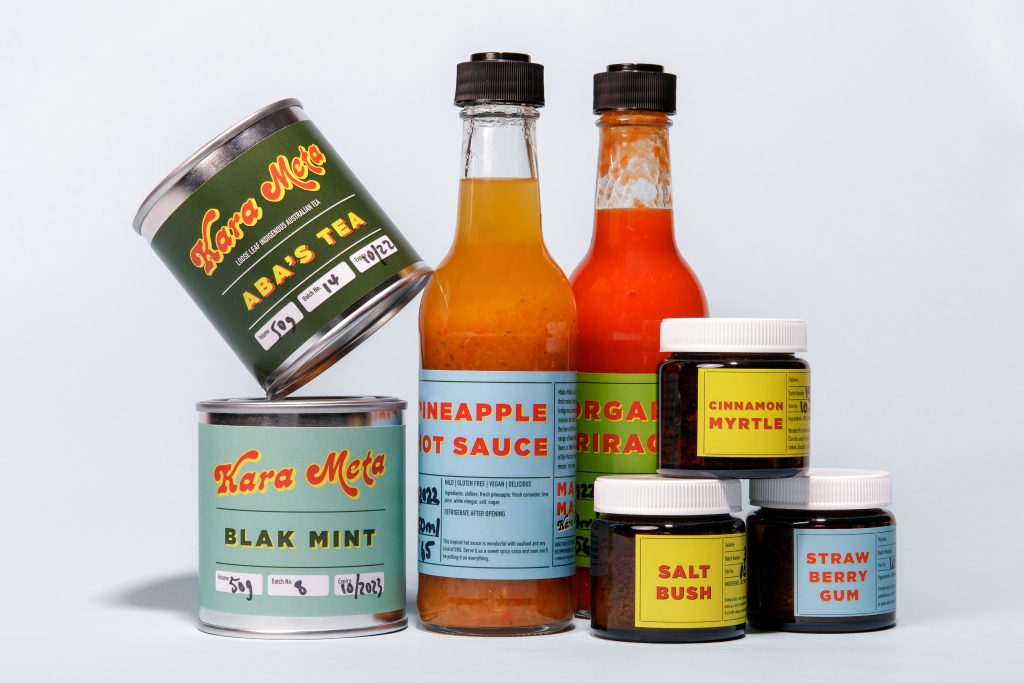
Her first restaurant job in Melbourne was at the Grandview Hotel and she moved to various respected kitchens around the city, but often wondered why nobody was using Australian ingredients. Eventually in 2018, she opened Mabu Mabu and sold sauces, spice mixes and teas made from native plants—like pickled karkalla, wattleseed hot chocolate and more. “In Australia we have so many great power-packed natives, and we don’t use them. They grow naturally and we’re missing out on the amazing flavors that are here. As part of what we do at Mabu Mabu is we want to give you all those flavors, we want you to come and taste those flavors.”

One of Bero’s favorite ingredients is the bush tomato, which she refers to as “the Indigenous stock cube.” Indigenous people have been harvesting it the same way for many, many years. “They let it turn to almost like a raisin on the bush and then add it to stuff. It’s like something between a tomato and an eggplant. It’s also called a bush raisin because of the way that they harvest it, and we’re still now commercially doing it the same way. How cool is that? One native ingredient that is growing here on a little shrub can give you every flavor of a stock cube. And that’s only one ingredient.”
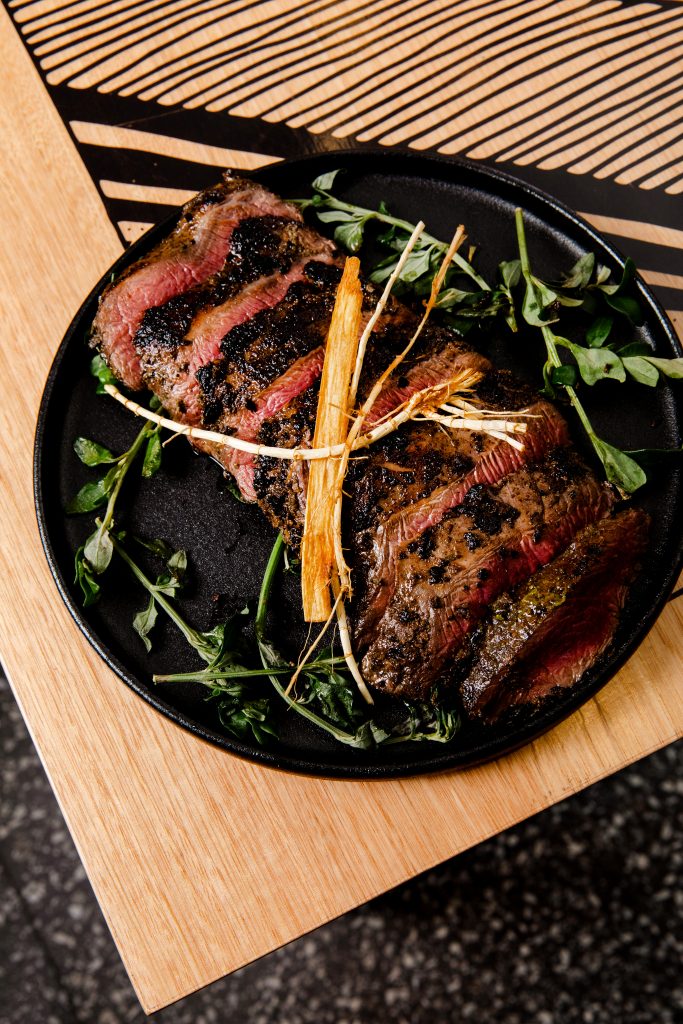
Mabu Mabu’s venues are the ideal way to get familiar with some of the ingredients, if cooking with them is still daunting. “We’re not here to give you a little sliver of samphire [a native succulent sometimes called sea asparagus] on the top and go, ‘Samphire!’ You’ll taste… nothing,” she laughs. “We give you five to six different natives in one dish so that you can have those multiple flavors and really taste what Australia is all about.” But ultimately, Bero wants to make native ingredients accessible to everybody. “I want people from all different backgrounds and all different pocket sizes of money to be able to afford it. I mean, it does grow naturally here, why are we making it into a superfood? For me, it’s normal food. It is our food of this country.”

That extends into agriculture too, with Bero explaining that focus in farming is less about native flora. “We need to start helping the farmers that are growing them so that we can commercially put them into kitchens. We do it for every other product, so why not do it for our own as well?”
The thing that was important about it for me is that I could represent people from where I come from and the many cultures that I grew up around
Now, with a cookbook—something she never imagined writing—Bero can spread the word even further. “The thing that was important about it for me is that I could represent people from where I come from and the many cultures that I grew up around,” she explains. “It was important to represent my culture and represent something different because I want to make a difference, you know. I want to be a good role model, especially for any Island kids that grew up like me—with a spear in their hand in the middle of nowhere—to dream big.”
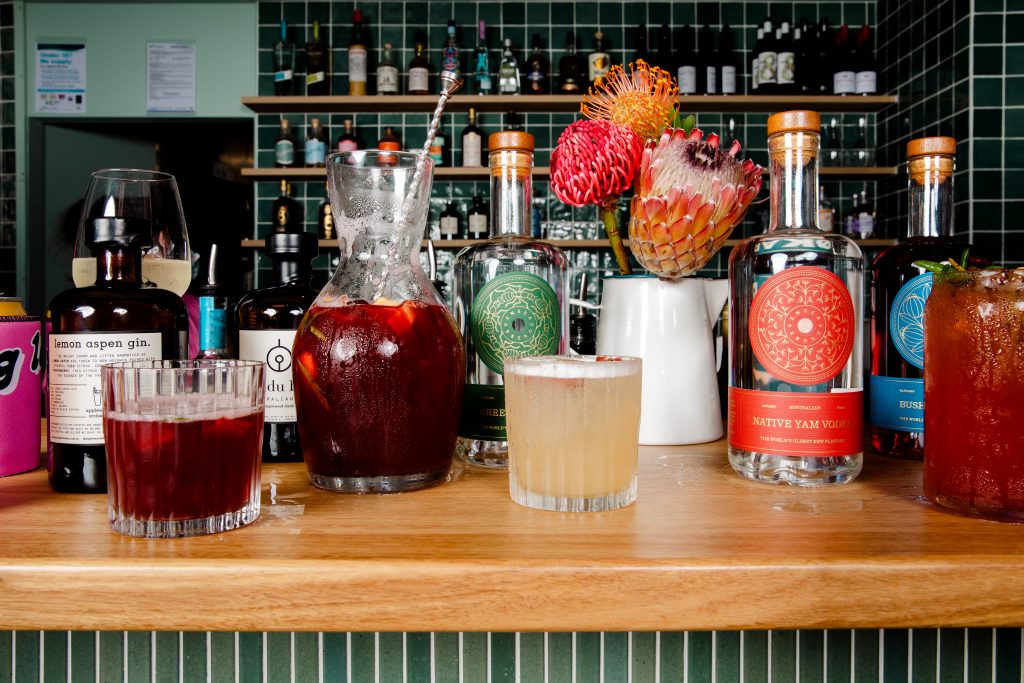
For her, that dream is through food, but that goes beyond actual dishes and ingredients. “I think the food industry has an important part to play in bringing people together no matter where they’re from,” she says. “And I just want to make it a very equal place—for everyone.”
Hero image courtesy of Parker Blain for Mabu Mabu

